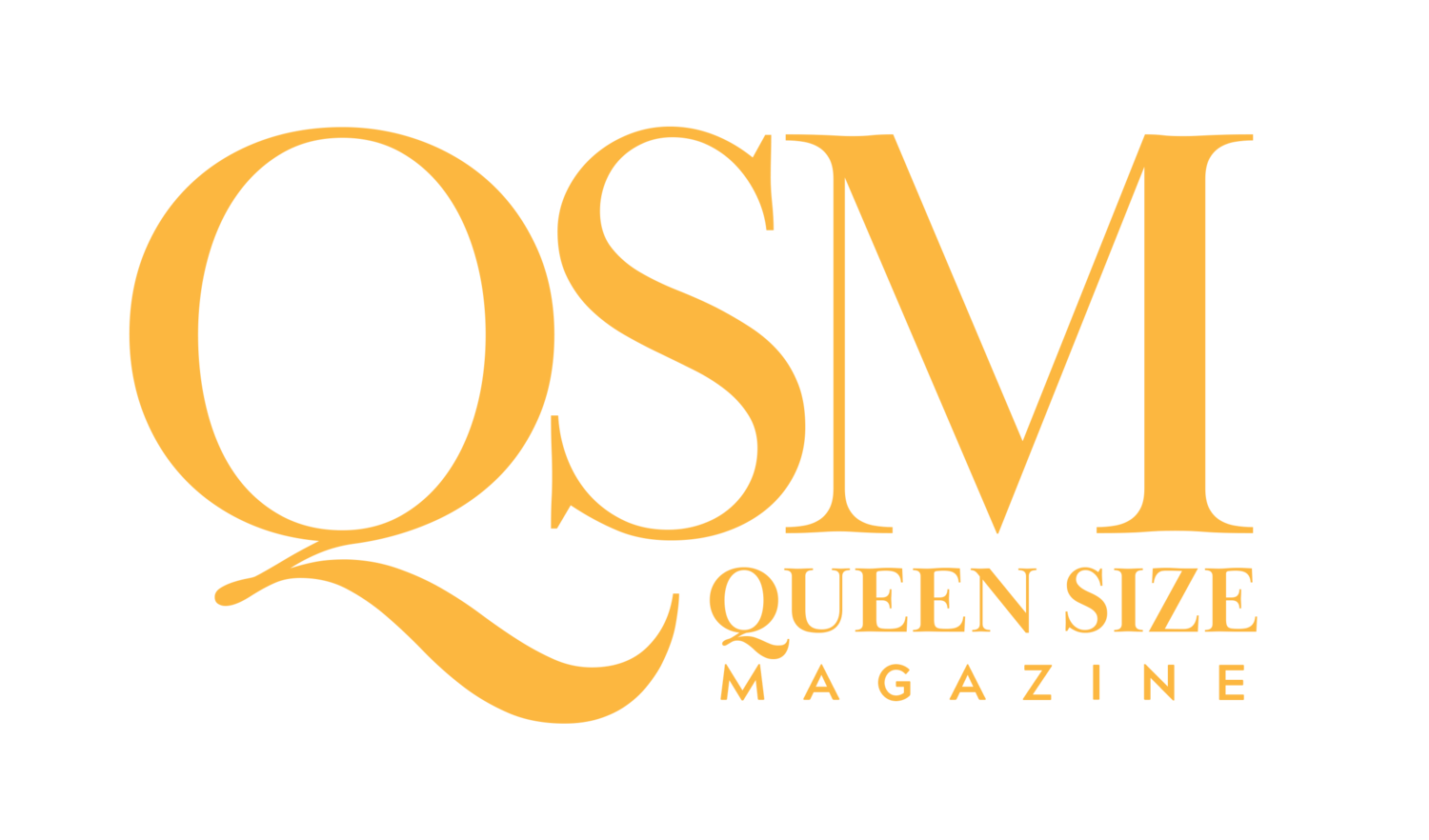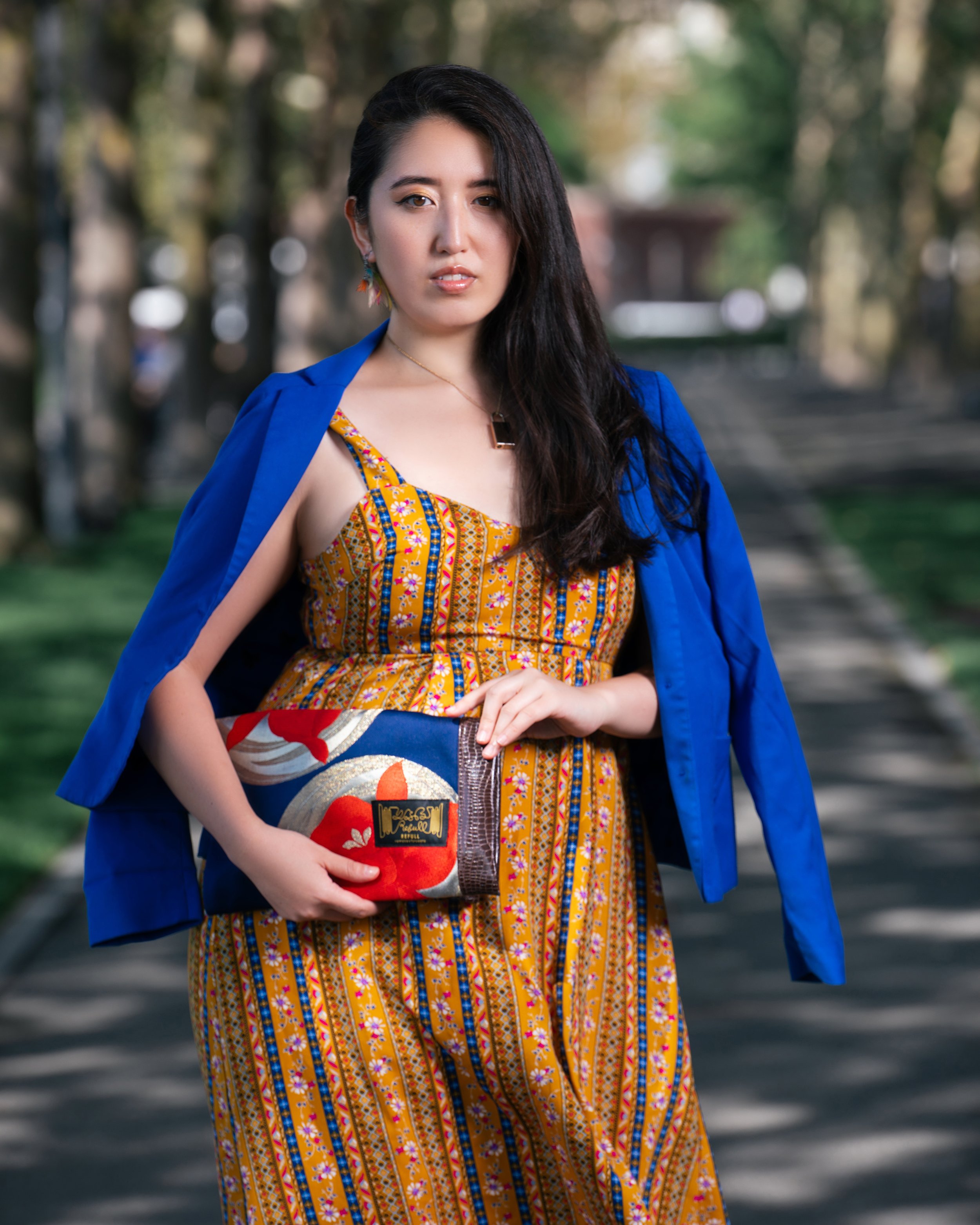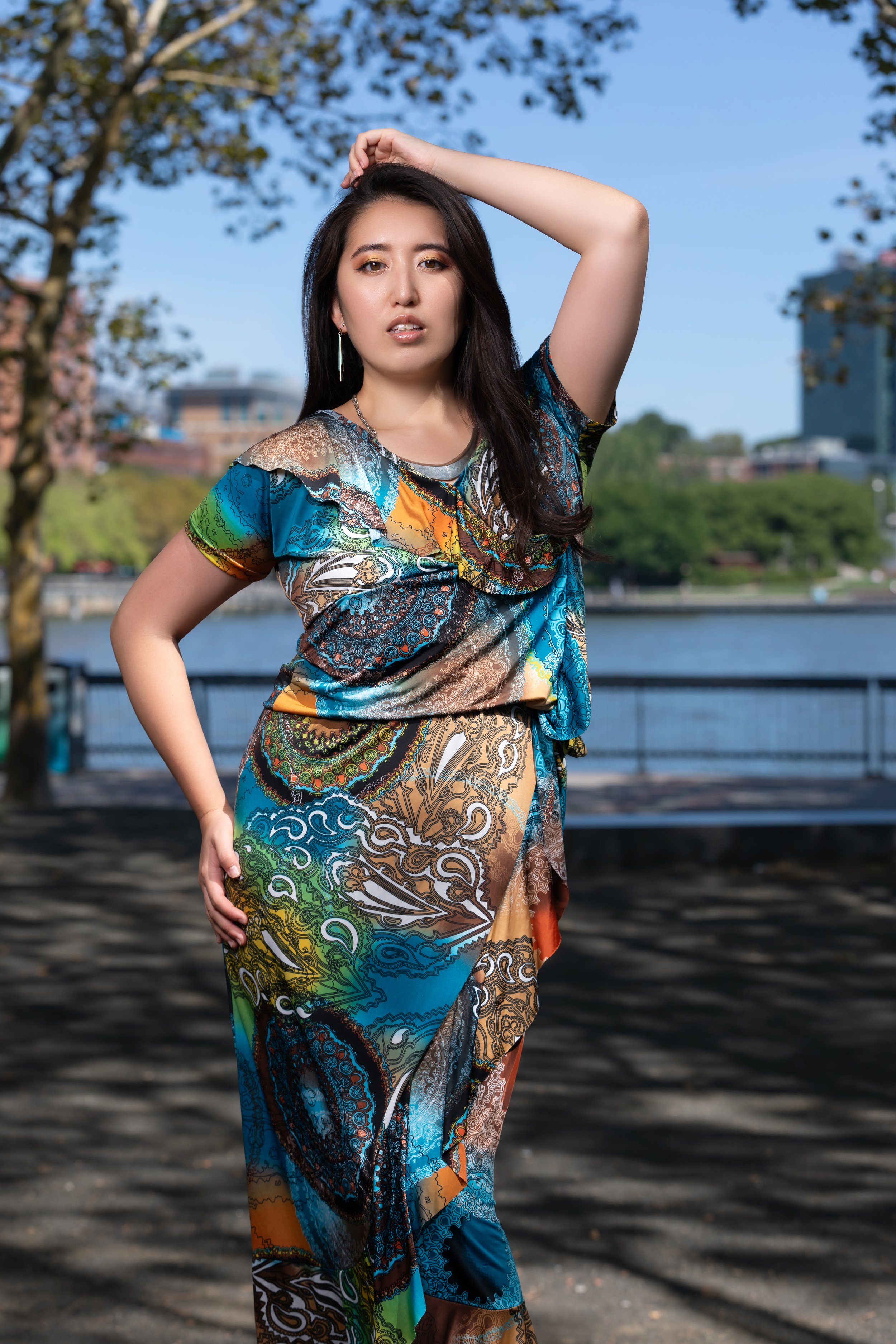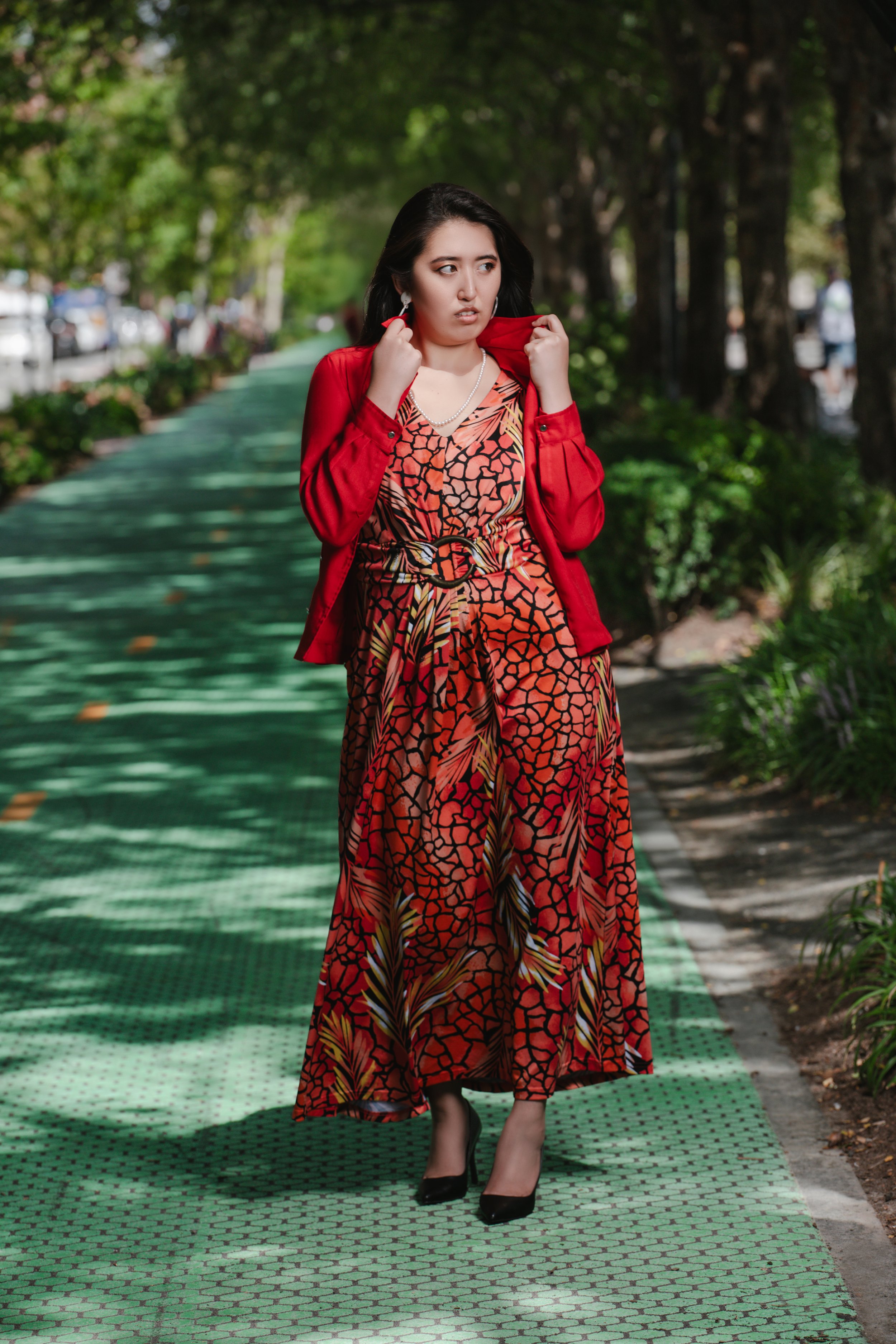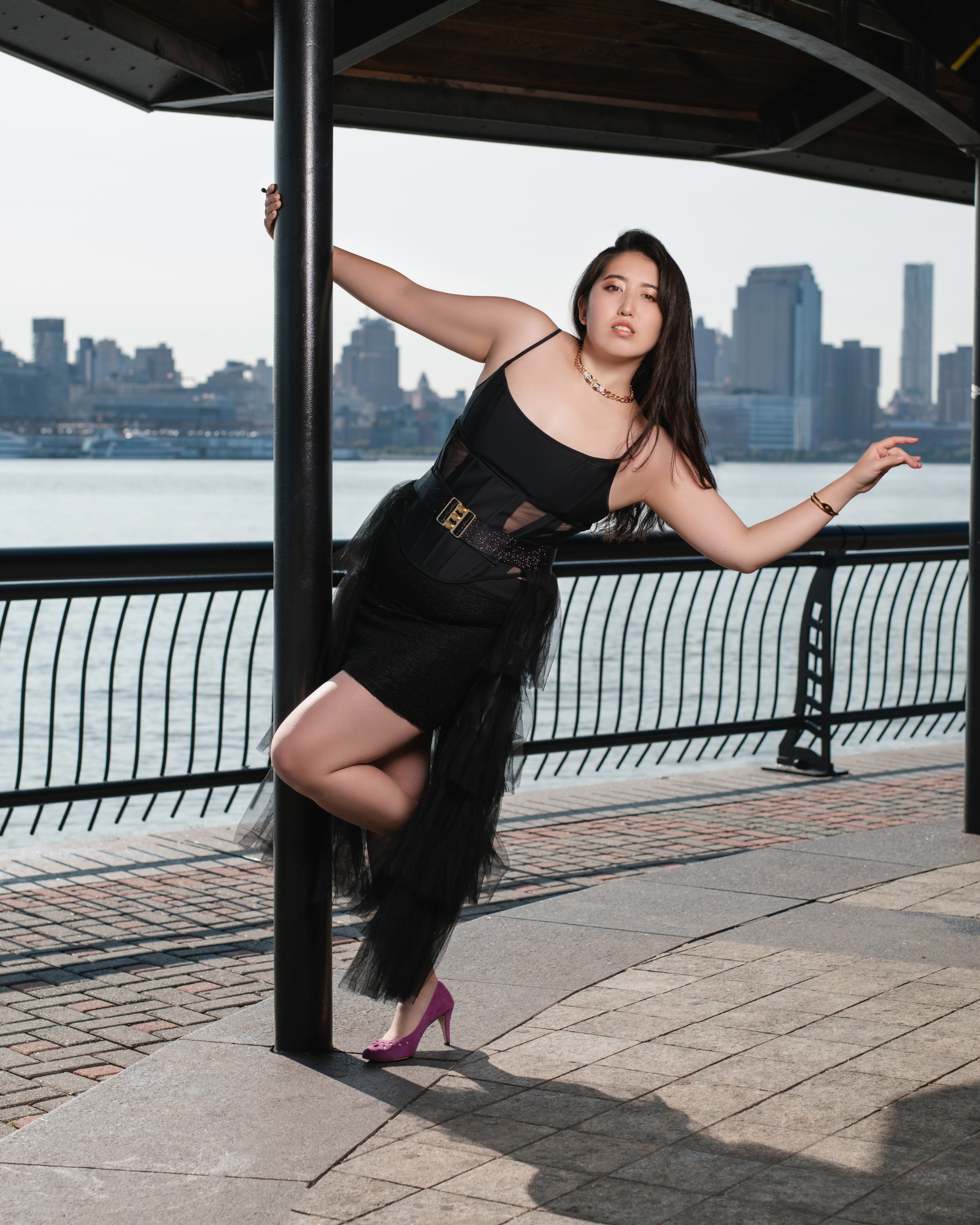EMPOWERING SELF-EXPRESSION:
MARIANA LYS AND THE GLOBAL IMPACT OF BODY POSITIVITY
Mariana LYS, a Tokyo-based plus-size model, originally hails from Yamanashi Prefecture, Japan. However, her upbringing includes six influential years in the United States, endowing her with complete bilingual proficiency in both Japanese and English.
Her journey commenced with the challenging experience of being subjected to body shaming, notably within her own family, a significant facet of her identity that took a substantial toll on her self-confidence. In 2018, she embarked on her career as a plus-size model, guided by the principle of "Championing Body Positivity to Unleash Your Authentic Self." This fresh perspective deviates from the conventional Japanese message of "Body Positivity: Love Yourself as You Are," with the intention of motivating people in Japan to embrace body positivity as a means of unlocking their true selves, much like Mariana did.
Apart from her modeling profession, Mariana actively participates in public speaking engagements, with a focus on raising awareness and offering insights into body positivity and self-acceptance in Japan. She frequently serves as a guest speaker at events organized by organizations dedicated to promoting gender equality.
Mariana LYS is currently exploring opportunities to expand her influence beyond Japan's borders. Her recent participation in New York Fashion Week attests to her growing global presence.
“The motto comes from my personal journey of body positivity, which enabled me to find my true self by making choices in life that are truer to my heart, rather than letting negative body image influence the various choices I make. ”
A Deeper Convo with Mariana
QSM: Can you tell us about your journey into the world of plus-size modeling and what inspired you to pursue this career path?
Mariana: I can honestly say that my journey as a plus-size model has never been more exciting than now. I started my work as a plus-size model in Japan in October 2018, so this year marked my fifth year of being on this journey. This year has been such a huge milestone year for me, also because I had the opportunity to model outside Japan for the first time, being a runway model for six designers at four fashion shows during New York and Los Angeles Fashion Weeks this fall.
What inspired me to pursue this career path was my strong desire for two things:
The first one is to correct Japan’s narrative of body positivity because Japanese media often disseminates many contradicting messages regarding body positivity. They tend to only use it as a buzzword without understanding the essence of it, saying damaging messages such as “Lose weight so you can love your body more and be body positive.” I wanted to take what I learned from iconic body positivity figures, especially from the US, as well as what I researched and better localize it into my culture.
The other one is to eliminate body shaming at least within families and households by reaching especially Japanese people in their 20s and 30s who are starting to have children, building a new family. Because I grew up being body-shamed by my parents into adulthood, I understand the significant impact that body shaming, especially by parents, can have on an individual; not only does that severely affect your self-esteem and body image, but also the choices you make in life based on that distorted narrative. I wanted to stop this harmful generational cycle and be a catalyst in promoting body love and diverse ways of being healthy, within especially my generation.
QSM: Your motto, "Body Positivity for Unleashing Your True Self," is quite unique. Could you share more about how this philosophy has shaped your approach to modeling and your advocacy efforts?
Mariana: The motto comes from my personal journey of body positivity, which enabled me to find my true self by making choices in life that are truer to my heart, rather than letting negative body image influence the various choices I make. I think the sort of body image you have has a tremendous influence on the choices you make in life, and those choices result in various experiences that shape you into either someone uniquely and genuinely you, or someone who is an agent of society’s expectations and toxic standards.
A little over a decade ago when I first encountered the term "Body Positivity" on social media, I found it quite difficult to genuinely embrace myself and my body as I am, particularly regarding the former. I could not help wondering what it truly means to be yourself and love yourself for that. After many self-reflections, one question hit me: Am I being my true self?
The answer was no. The negative self-narrative I had constructed over the years affected my choices in many aspects of my life, such as the food I ate, the clothes and colors I wore, the travel destinations I chose, the people I dated, and more. Because the choices made over the years were influenced by my negative body image and the narrative that I told myself instead of what I really wanted, I felt like the person I had become was not really my true self. I also felt like by making choices that way, I deprived myself of various experiences that I could have gotten which could have shaped me into a more genuine version of myself.
Loving your body and yourself as they are quite challenging, but if people think of body positivity as a way of being able to live their life without the restriction of their negative body image, which ultimately lets them find their true selves to show some love for, I thought it might resonate with more people in Japan.
QSM: Growing up, you mentioned experiencing fat-shaming, even from your own family. How did those early experiences influence your determination to promote body positivity?
Mariana: It definitely played a central role in creating my platform as a plus-size model in Japan. When children learn to be their own person and learn about the world, parents play a crucial part in forming their perceptions and self-esteem.
This early experience is the driving force behind my aspirations as a plus-size model: to foster a more nurturing and accepting environment within households, ensuring that the children of the next generation do not grow up burdened by the harsh effects of body shaming.
QSM: You're bilingual in both Japanese and English, which is a remarkable asset. How has your language proficiency impacted your work as a plus-size model and speaker on body positivity?
Mariana: Being bilingual in Japanese and English has helped me build connections with various activists both in Japan and overseas. Being an activist, particularly for body positivity, can sometimes be a lonesome journey in Japan, as I have seen many people who say they promote body positivity and diversity and yet still promote the very things body positivity aims to be away from.
That is where my English proficiency came into play as a valuable tool. I was able to build friendships with various activists outside Japan, who truly understand what body positivity is about and the struggles of being vocal about it. This was my support system for whenever I get discouraged that I am not making any difference, and I am truly thankful for them.
Another way my language proficiency has helped me is access to information. Many types of research, articles, and social media content about or in relevance to body positivity are predominantly available in English. This accessibility to the wealth of information has been instrumental in helping me deepen my knowledge about body positivity and also understand it from a scientific perspective. This enables me to enhance my messaging on social media and be a better communicator on the topic.
QSM: Japan often has different cultural perceptions of beauty and body image. Could you share some of the unique challenges you've faced as a plus-size model in Japan and how you've worked to overcome them?
Mariana: I can think of two challenges: One is the general public’s sentiment that plus-size models are not “real models” and the second is the lack of plus-size fashion that shows off the diverse bodies.
The majority of Japanese society still tends to view bigger bodies as a result of slacking off and not making an effort into being healthy. That is why many Japanese people still do not take plus size models seriously compared to conventional models.
In order to address the first challenge, I have made sure to build up my skills as a model over the years so no one can dismiss my legitimacy as a professional model. I did so by taking many modeling classes in Japan for posing and runway walk, researching how some of the world's top models posed and did their walks, and putting that all into practice through collaborative photoshoots with various photographers in Japan. Especially in my country, the image of plus-size women can be quite limited to cutesy and innocent-looking unlike the markets like the US where there are more fierce, empowered-looking plus-size individuals. So another mission of mine during such photoshoots is to create high quality, fierce images as a plus-size woman that can hardly be seen in my country as well as Asian plus-size women in general.
Regarding the second challenge about plus-size fashion: Plus-size fashion in Japan tends to hide people's figures rather than showing them off unlike the Western plus-size fashion; many are marketed to hide what the society thinks we should change or be insecure about. Fashion techniques such as "Kiyase" (wearing to look thin) and "Taikei Kabaa" (covering up body shape) are still a big trend in Japanese plus-size fashion, putting an emphasis on hiding your body so other people would not see how big you are, or making yourself look thinner than you actually are. I have always been skeptical about this trend because I thought, "If we want the Japanese society to embrace body diversity, how can we do that by hiding our bodies instead of showing our shapes?" I retaliate against this horrid trend by wearing clothes that show off my figure so that it can inspire other plus-size individuals to choose and wear clothes that celebrate their body shapes, rather than ones that put their bodies into shame and hiding.
QSM: You're actively involved in speaking engagements focused on body positivity and self-love. What are some of the most important messages or lessons you aim to convey to your audience during these events?
Mariana: After fine-tuning the way I communicate about body positivity and self-love over the years, I narrowed down my main messaging to two things: one is that regardless of how much you change your bodies based on other people's standards, people will always have something negative to say about your appearance. The other is that you don't have to love your body immediately, but just make sure you express and show love.
These come from my personal experience of putting on a lot of weight in the past and although I was at what I perceived back then as my ideal weight and an ideal form, people still fat-shamed me and told me where I should lose more fat. I always want people I get to speak to at these events to think about how long they are going to spend their lives adjusting their bodies for everyone else, when people will always criticize something about your body.
I also know that although the term, "love yourself" is easier said than done. Especially in the Japanese language, we barely use the verb, love, and everyday life, and the connotation of loving something or someone is covered by a term equivalent to "really like." Due to this cultural and linguistic background, I thought that introducing the idea of showing and expressing love to your body and yourself is a much more attainable action under the context of body positivity and self-love.
QSM: You've recently walked in New York Fashion Week. Can you describe the experience and the significance of representing body positivity on such a prestigious international platform?
Mariana: I had the opportunity to be the runway model for four designers at two shows during New York Fashion Week. Although the experience was exciting, I will also say that it was also overwhelming and challenging, because from the casting phase until the actual show, what was asked of models felt completely opposite from Japan; being a runway model at New York Fashion Week required to show more character and sass, while Japanese fashion shows prefer less character and simpler walks. So it was challenging for me to break out of the shell that I had created while modeling in Japan and adjust to the modeling culture in the US.
With that said, it was an honor for me to represent an Asian plus size body at one of the most prestigious fashion events in the world. Although plus-size bodies have become more visible compared to the past, I feel like Asian plus-size bodies are especially underrepresented even globally. A designer I crossed paths with during my month and a half trip to the US this fall was also mentioning how they also hardly see Asian plus-size models and that they were excited they got to know me.
Especially in Japan, people with bigger bodies tend to be shamed for wearing certain outfits or even for having confidence and pride in their bodies.
I hope that people who saw me thrive at these fashion shows, especially people in Japan, can know that you are allowed to and you deserve to feel confident and have pride in your body. That you are allowed, and you deserve to feel fabulous and beautiful in the clothing that you like.
If my work at New York Fashion Week as well as Los Angeles Fashion Week is not convincing, I hope how the talented, visionary designers who I got to model for celebrated me and the audience who enjoyed my representation as an Asian plus-size model are a powerful testimony to help especially Japanese people believe that outside the tiny islands of Japan and its small society, there is a whole world of people who celebrate and are inclusive towards bigger bodied people like us.
QSM: Could you share some of your personal milestones or achievements that you're particularly proud of in your journey as a plus-size model and body positivity advocate?
Mariana: My biggest achievement as a model would have to be tested for fashion shows at New York and Los Angeles Fashion Weeks. By being accepted as a model on an international stage especially in a country where body diversity is very prominent, I felt like my skills as a model have been validated and my work as a plus-size model got more credibility.
Getting more credibility as a plus size model is important for my body positivity advocacy work because I feel that people listen more when your professional title is of a profession that involves embracing your body and creating your own way of beauty.
Although I have yet to build a stronger social media presence, I have been lucky enough to work with various organizations to speak at their events about body positivity and self-love. My biggest achievement for my advocacy work would have to be my recent work with TASTE, which stands for Trans-boundary Alliance of Specialists Teaming against Eating disorders. They collaborated with me, another plus size model activist, and a body positivity illustrator to plan an event for teenagers and guardians who struggle with body image. One of my goals was to collaborate and form a partnership with professionals who are knowledgeable about the toxic diet culture and beauty standards, so I was so honored when they invited me to work with them.
QSM: How do you see the landscape of body positivity and acceptance evolving in Japan, and what role do you envision yourself playing in its progression?
Mariana: I think especially compared to five years ago when I first started modeling, body positivity and acceptance have progressed, albeit at a very slow pace. In addition to more plus-size fashion brands and a little bit more of larger size offerings, I also started seeing more news about Japanese celebrities speaking up against body shaming so that is definitely a fresh change.
However, I feel that many Japanese people still think that body positivity is a trend that is acceptable overseas because of how curvy people's bodies there are compared to Japan.
As someone who aims to bridge the English-speaking world, where the body positivity movement gained momentum, and Japan, which is only just beginning to embrace it, I aspire to serve as a messenger, conveying the universal message that "Body positivity is for everybody and EVERY BODY" to the Japanese audience.
I hope to bring my unique abilities combined with a distinctive way of beauty you normally would not see in a Japanese plus-size model to further position myself as an international advocate, bringing a good force into Japan to drive further change, especially through the individuals I get to build connections with.
QSM: What are your future aspirations and goals, both within and outside of Japan, as you continue to expand your work as a plus-size model and advocate for body positivity and self-love?
Mariana: Because opportunities as a plus-size model in Japan are still very limited or the ones that are available contradict body positivity, the next chapter of my career involves expanding my work and presence overseas, starting with getting signed to an agency outside Japan or being in as many fashion shows as my time and finances allow.
There have been various cases when underappreciated Japanese talents become successful in the overseas market which then makes the Japanese market finally be appreciative of them. I would like to aim for the same thing to happen to me so that my advocacy platform and credibility can expand, backed by validation from a much bigger international market.
Through expanding my platform, I hope to establish further alliances with various professionals and experts who are out in the actual field, seeing the real brutal impacts of toxic diet culture and unattainable beauty standards. I wish to collaborate with such individuals and organizations more in the future and aim to create bigger synergy and impact through collaborative events with them.
All images shot by Philip Drew @photosbypdrew
Retoucher: @linda.baza.retoucher
